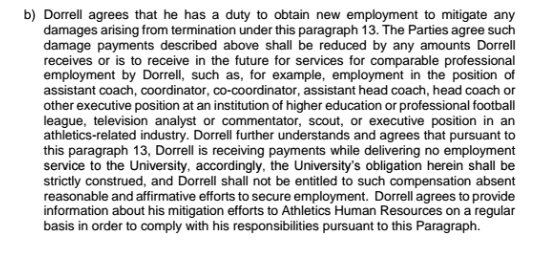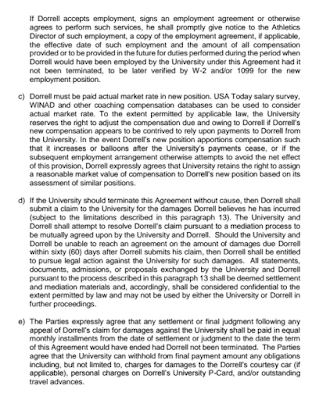So, the football program is in rough shape. I mean really rough shape. 0-3 to start the year, outscored 128-30 (52-7 over the three 2nd halves), outgained by an average of 173 yards per game kind of rough shape. The kind of rough shape where you can make the statistical argument that this is *the worst* iteration of Colorado Football across more than 120 years of competition.
Indeed, Sports-Reference has the 2022 Buffs as an adjusted -18.21 points below average. That's the worst in program history by some margin, with the 2012 Buffs their closest comparison at -12.66. Before that, you have to go back to the late 1910s to find comparatively worse squads. Even the worst Chuck Fairbanks team, a man who is famous for having lost to Drake... twice, is considered to be a relative 11 points per game better than this bunch.
Oh, and Pac-12 play hasn't even started yet.
This all comes on the heels of a pretty lousy 2021 season, where the Buffs stumbled to a 4-8 finish. Overall, I think it's plain to say that the fortunes of the program have very clearly been declining since the day head coach Karl Dorrell was hired in February of 2020.
Naturally, with all that in mind, you might be inclined to consider a change at the head coaching spot to be the cure, as any normal fan would. Hell, Nebraska and Arizona State did, and they aren't nearly as bad on the field as the Buffs are.
Well... as in all cases, the money is the thing. It costs cold, hard cash to fire a football coach. So, exactly how much money are we talking about? Well, for that answer, we can turn to the contact. As Colorado is a public institution, it is a publicly-available document, which you can find here or here.
In reading for the final number, the assumption is that Dorrell would be fired "without cause." i.e., that he would be fired for on-field football performance reasons, rather than something involving a criminal offense, insubordinate conduct, fraud, severe NCAA violations, violation of campus laws, gambling, endangering student-athlete health, or any of the other reasons covered under Paragraph 12. As such, his termination would fall under paragraph 13 of the contract, which I have re-produced below.


Now, I am not a lawyer. If you feel the need, please do reach out to one for advice in reading this document. However, as a layman, I think the salient parts for this discussion are a (iii), b, d, and e.
- a (iii) -- The damages that Dorrell can seek for termination without cause are limited to the full-dollar value of his contract. For example, if he was fired after 12/31/2021, but before 12/31/22, he's owed a maximum of $11.4 million, less whatever he's earned up to that point in 2022. The Daily Camera's Brian Howell estimated that means the real-dollar buyout is about $8.7 million, as of 9/17. That number decreases with every paycheck that is sent his way.
- b -- After termination, Dorrell would be expected to actively seek other football-related employment, including assistant coaching positions or work in media commentary. The salary value of that employment would be used to offset the overall value of the buyout.
- d -- After termination, Dorrell would need to file a claim for the value of this buyout. Then, there would be a 60-day mediation window for the university and Dorrell to come to an agreement on the final terms. This would allow the university to potentially negotiate and mitigate the full impact of what is owed. Otherwise, Dorrell would need to pursue legal remedies.
- e -- Whatever the mediated/adjudicated final amount, Dorrell would be paid out in monthly installments between the settlement/judgment date and the original end date of the contract, 12/31/24.
So, CU would need to come up with a maximum of ~$8.7 million to fire Coach Dorrell today. There would be offsets, there would be potential limitations through mediation, and the final amount would be paid out over the next two-plus years. However, regardless of the final total, it would be multiple millions of dollars per year out of a budget that is already bleeding red ink.
Indeed, it's an amount of money that, at least as far as I can tell, the Athletic Department does not have. In 2021, the department
reported a nearly $17.5 million deficit, helped along by over $48 million in revenue loss YoY from
2020, almost entirely due to COVID impacts. Sure, plenty of programs across the country are recovering from similar-sized holes in their ledgers, but Colorado has rarely, if ever, shown the donor liquidity typically needed to plug such gaps.
This leads to Atheltic Director Rick George's
statement from 9/18/22. In the text, a tight three paragraphs of media relations jargon, George acknowledges that the on-field results have been disappointing and that the fanbase deserves better results. That he "hears" the cries from the fanbase for action, and confirms that the program is not meeting expectations. However, he concludes with a request for support for the student-athletes. The word "support" is even duplicated in that final sentence.
Assuredly, "support" in this context is not singing the fight song. No, this is a plea for two things. 1) please don't boo the kids on game days or continue to harangue the interns covering the social media accounts. 2) CU is in desperate need of financial "support" as a predicate to take action.
Point 1 is fair enough. The displeasure is clear and understood, shaming the kids on the field or in the SID office further won't help things. Point 2, however, is less so.
Colorado's contract offer of February 2020 made Dorrell the
3rd-highest paid coach in the Pac-12 at the time. That move seemed to come as a direct response to whispers that the program didn't have the money or institutional financial support to compete at a high level. But it didn't seem destined to actually
improve the football program. Dorrell was not an in-demand coaching name, having floated around various position coaching roles since being blasted out of the UCLA head job in 2007 for going 35-27 over five seasons. No one was fighting Colorado for this hire, least of all his then-employer, the Miami Dolphins.
CU, as the world was slipping into a pandemic and related recession, had gone out and over-paid for a coach with a relatively unimpressive NFL-adjacent resume to silence rumors that they were too poor to compete. Oh, and they threw in a strong buyout clause for good measure, too, as a frenzied reaction to the way their previous coach, Mel Tucker, had bolted in the middle of the night. (I should note, that clause was specifically
lauded by at least one regent when the contract was approved, which makes me think it could've been an institutional ask, rather than just George flailing on the rebound).
It was a contract offer that was a mistake before the ink dried.
With that in mind, will CU donors really be willing to foot another multi-million dollar bill, one stemming from a hire that was laughably out-of-touch with reality and value when it was made? Handing yet another swing to an AD who has failed on now two hires at the only sport he's really held to account over? Would the Regents?
I doubt it.
And, if it isn't coming from donors and isn't coming from the Regents, just where would this $8.7 million over ~27 months come from?
Until an answer to that question can be found, Karl Dorrell has the safest job in the country.




